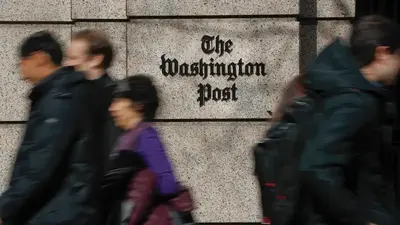Business
Asian shares mostly rise in muted trading on bargain-hunting
TOKYO -- Asian shares were mostly higher Friday after Wall Street benchmarks fell on worries that the U.S. Federal Reserve will keep raising interest rates.
Markets rose in Japan, Australia, South Korea and China in muted trading. Oil prices rose.
Hot readings on the U.S. jobs market Thursday got traders thinking the Fed will need to keep inflicting pain on the economy to fight surging prices. Inflation has been easing from a peak of 9.1% in June to 7.1% in November and investors have been hoping for signs that could prompt the Fed to ease up on applying the brakes to the economy with high interest rates. Those hopes have been dashed so far.
The strong labor market reports set the stage for the release on Friday of the Labor Department’s snapshot of hiring in December.
“Overall risk sentiments could lean more toward a wait-and-see in the lead-up to the U.S. job report later, lacking a clear conviction in market direction from Wall Street over the past few days,” Yeap Jun Rong, market analyst at IG, said in a report.
Japan's benchmark Nikkei 225 rose 0.6% to finish at 25,973.85. Australia's S&P/ASX 200 added 0.7% to 7,109.60. South Korea's Kospi gained 1.1% to 2,289.78. Hong Kong's Hang Seng erased earlier gains, edging 0.1% lower to 21,024.36. The Shanghai Composite rose 0.1% to 3,159.72.
Analysts expect economic growth in Asia to slow this year, although China's easing of COVID-19 restrictions is expected to be a plus. Suktae Oh, an analysts at Societe Generale, expects the Bank of Korea to raise rates by 25 percentage points to 3.50% at its policy meeting next week.
“The data continue to indicate weak economic activity and peaking inflation. The concerns surrounding financial stability have persisted due to high corporate leverage and housing market weakness, which would be bearish for growth outlook,” he said.
On Thursday, the S&P 500 fell 1.2% to 3,808.10. The Dow dropped 1% to 32,930.08. The Nasdaq slid 1.5% to 10,305.24. The Russell 2000 index fell 1.1% to 1,753.19.
Payroll company ADP reported a bigger-than-expected increase in jobs at private companies last month. The U.S. government reported the number of Americans applying for unemployment benefits fell to the lowest level in more than three months last week.
On Wednesday, a government report showed a higher than expected number of job openings in November.
The upcoming Labor Department snapshot of hiring in December is a closely watched figure that typically has come in stronger-than-expected when following a robust ADP jobs report, according to Brad McMillan, chief investment officer for Commonwealth Financial Network.
“The real question for investors tomorrow will be whether the economy continues to grow faster than expected — and faster than the Fed wants — or will it stay in a sweeter spot with continued moderate growth," he wrote Thursday. “The data suggests the former.”
A strong jobs market exerts upward pressure on wages and reaffirms the central bank's determination to keep interest rates high to slow economic growth and tame inflation. The strategy, though, risks going too far bringing on a recession.
The Fed’s benchmark lending rate stands at a range of 4.25% to 4.5%, up from close to zero following seven increases last year. It has forecast that the rate will reach a range of 5% to 5.25% by the end of 2023 and it isn’t calling for a rate cut before 2024.
Meanwhile, Wall Street is looking ahead to the latest round of corporate earnings to get a better a sense of how companies are handling hot inflation and weakening consumer demand. Companies in the S&P 500 will pick up the pace of reporting in a few weeks, but some results are already trickling in.
Energy stocks bucked the broader market slide as the price of U.S. crude oil settled 1.1% higher.
Benchmark U.S. crude added 58 cents to $74.25 a barrel in electronic trading on the New York Mercantile Exchange. Brent crude, the international pricing standard, rose 60 cents to $79.29 a barrel.
In currency trading, the U.S. dollar climbed to 134.08 Japanese yen from 133.40 yen. The euro cost $1.0520, little changed from $1.0524.
___
Yuri Kageyama is on Twitter https://twitter.com/yurikageyama
-

 Business20h ago
Business20h agoNew Information: These HV Big Lots Are Now Staying Open
-

 Business20h ago
Business20h agoBrush Fire Rages On Near Butternut In Great Barrington, MA
-

 Business1d ago
Business1d agoU.S. Antitrust Regulators Seek to Break Up Google, Force Sale of Chrome Browser
-

 Business1d ago
Business1d agoSuccessful White Men Alone Can’t Create America’s Economic Future
-

 Business1d ago
Business1d agoThe Rise of Silent Services
-

 Business1d ago
Business1d agoTim Latimer
-

 Business2d ago
Business2d agoCarbon offsets can help bring energy efficiency to low-income Americans − our Nashville data shows it could be a win for everyone
-

 Business2d ago
Business2d agoWorkplace diversity training programs are everywhere, but their effectiveness varies widely



























